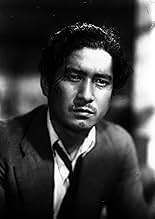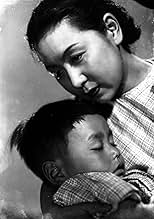Ozu's first movie after the war is full of scenery that points towards a rapidly industrializing Japan. There are no remnants of what happened a handful of years ago. As a son of a single parent, I empathized with the film's protagonist. Yes, Ozu does make his character do the extreme because that makes for a far more engaging cinema.
A Hen in the Wind also manages to depict a real look at marriages and how much woes Japanese (and Southeast Asian) women were subject to. At that time, both capitalist and communist nations put out propaganda films to show their women as leaders. A Hen in the Wind.gives you an authentic peek at how much genuflecting women from these cultures had to perform in order to live a very ordinary life where poverty awaits them at every corner. The Italian film, Bicycle Thieves (released around the same time) makes a great companion piece to A Hen in the Wind. If you've loved one, you'll love the other.


























